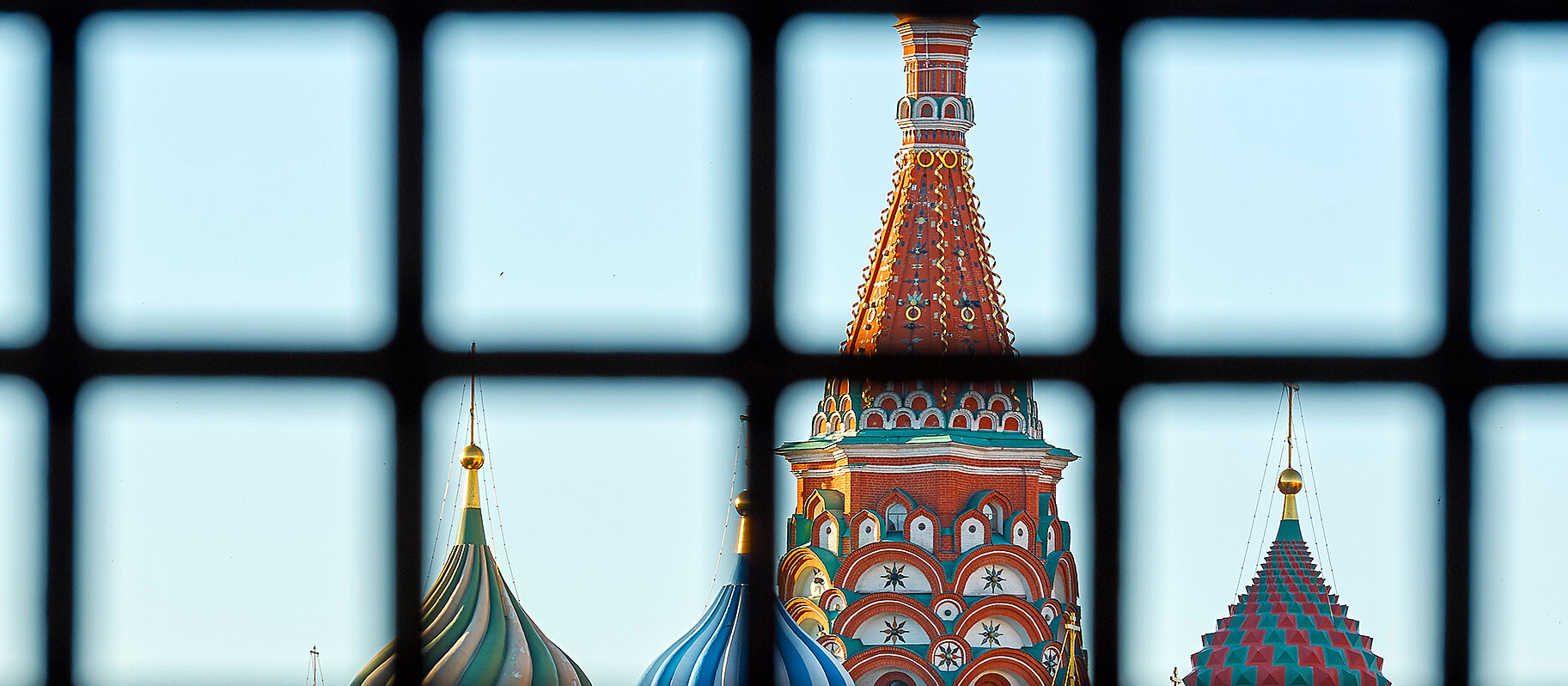The Ninth EU Sanctions Package on Russia
As an immediate response to Russia’s massive attacks on civil infrastructure in Ukraine, the EU adopted its ninth sanctions package on Russia on 16 December 2022.
The ninth sanctions package comprises
- Regulation (EU) No 2022/2474, which amended the Russia Sanctions Regulation (Regulation (EU) No 833/2014) to include further items- and services-related restrictions against Russia and natural and legal persons, entities and bodies in Russia;
- Regulation (EU) No 2022/2475 amending Regulation (EU) No 269/2014, which imposes person-related sanctions on the natural and legal persons, entities and bodies listed in Annex I of Regulation (EU) No 269/2014 (in the form of a freeze on assets they have in the EU and a prohibition on making funds and economic resources available to them); and
- Implementing Regulation (EU) No 2022/2476, which adds further persons, entities and bodies to the said Annex I of Regulation No 269/2014.
New person-related restrictions
Regulation (EU) No 2022/2475 amends Regulation No 269/2014 by introducing further derogations from the asset freeze and from the prohibition on making funds and resources available in order to further address food security concerns in third countries. For example, the competent authorities of a Member State are now allowed to authorise such derogations in favour of certain listed entities and – subject to strict conditions – also in favour of all listed natural persons if the funds or economic resources concerned are necessary for the purchase, import or transport of agricultural and food products.
Furthermore, Implementing Regulation (EU) No 2022/2476 adds further 141 natural persons (including further members of the State Duma, members of the Federation Council, members of the Russian government, propagandists, judges of the Russian Constitutional Court, members of the Russian armed forces, collaborators, leaders of Russian state-owned companies and family members of listed persons) and 49 entities (including Dalnevostochniy Bank, various Russian political parties, Russian media companies and companies in the military and aviation sector) to the list set out in Annex I of Regulation (EU) No 269/2014.
New export restrictions
The ninth sanctions package adds further items to the lists set out in Annexes VII, XI and XXIII of Regulation (EU) No 833/2014, thus completely prohibiting their sale, supply, transfer and export to Russia and the provision of services and financing for them.
More specifically, Annex VII, which lists advanced technology items, has been amended to subject further items to the restrictions under Article 2a of Regulation (EU) No 833/2014. For example, drone engines (item X.A.VII.003), camouflage equipment (item X.A.VIII.023), other irritating chemical substances (item X.A.VIII.021.g) and equipment for handling, analysis and detection of biological and chemical agents (items X.B.X.011-X.B.X.027) have been included in Part A of the said Annex. Part B of Annex VII has been extended to include other electrical/magnetic components (CN Codes 8505 11, 8532 24, 8536 50, 8536 69, 8536 90 and 8548 00) and machines for additive manufacturing (CN Codes 8485 20, 8485 30 and 8485 90). New grandfather clauses have not been introduced with respect to these newly listed itemss.
Furthermore, Annex IV, which lists entities closely linked to Russia’s military and industrial complex that are therefore subject to particularly tight export restrictions in relation to the dual-use itemss listed in Annex I of the Dual-Use Regulation (EU) No 2021/821 and the advanced technology items listed in Annex VII of Regulation (EU) No 833/2014 (cf. Article 2(7), Article 2a(7) and Article 2b(1) of Regulation (EU) No 833/2014), has been extended to include an additional 168 entities.
Apart from that, the export bans on aviation and space technology and goods set out in Article 3c of Regulation (EU) No. 833/2014 have been expanded by adding a new Part C to Annex XI of Regulation (EU) No 833/2014 so as to also include engines for aircraft and parts thereof (CN Codes 8407 10 and 8409 10). A new grandfather clause relating to this type of goods has been included in Article 3c(5b) for the execution until 16 January 2023 of contracts concluded before 17 December 2022.
Annex XXIII, which lists goods for industrial applications, has also been extended to include further goods by adding a new Part B comprising, inter alia, oils (CN Code 2710 19), various data processing machines and parts thereof (various subcategories of CN Code 8471), electricity generating sets (CN Code 8502 20), radio navigational aid apparatus (CN Code 8526 91), radio remote control apparatus (CN Code 8526 92), printed circuits (CN Code 8534 00), cameras and objective lenses (CN Codes 9002 11, 9002 19 and 9007 10), telescopic sights (CN Code 9013 10) as well as toy drones (CN Codes 9503 0075 and 9503 00079); with respect to the goods listed in the new Part B that has been added to Annex XXIII, Article 3k(3b) introduces a new grandfather clause (concluded before 17 December 2022, execution until 16 January 2023).
New restrictions on the provision of services and financing
In addition to the non-goods-related services already prohibited in the fields of accounting, auditing, tax consulting, management consulting and public relations services (Article 5n(1) of Council Regulation (EU) No 833/2014) as well as architectural and engineering services, legal consultancy services and IT consultancy services (Article 5n(2) of Council Regulation (EU) No 833/2014), the ninth sanctions package introduces new prohibitions on the provision of services to the Russian government or legal persons, entities and bodies established in Russia, specifically in the fields of market research and public opinion polling services, technical, physical and chemical testing and analysis services and advertising services (Article 5n(2a)). The types of services to be covered by each of the prohibitions are described in more detail in Recital 26 of Regulation (EU) No 2022/2474.
Furthermore, the prohibition on new investments in the Russian energy sector has been expanded by inserting a new paragraph 2 in Article 3c of Regulation (EU) No 833/2014 to also include the Russian mining and quarrying sector.
New restrictions on Russian state-owned companies
With the Russian Regional Development Bank, another Russian state-owned company that has been included in Annex XIX of Regulation (EU) No 833/2014, thus imposing a total ban on engaging in any transactions with the said bank, its majority-owned subsidiaries based outside the EU as well as persons, entities and bodies acting on its behalf or at its direction pursuant to Article 5aa(1) of Regulation (EU) No 833/2014. With respect to the execution of transaction with the newly listed Russian Regional Development Bank and the reception of payments from it, Article 5aa(2d) and (2e) set out new grandfather clauses (execution until 18 March 2023 of contracts concluded before 17 December 2022 and no prohibition on the reception of payments due pursuant to contracts performed before 18 March 2023).
Furthermore, a new paragraph 1b is added to Article 5aa of Regulation (EU) No 833/2014 which prohibits EU persons as from 16 January 2023 from holding any posts in the governing bodies of Russian state-owned companies, their majority-owned subsidiaries based outside the EU as well as persons, entities and bodies established in Russia acting on its behalf or at its direction. This prohibition has previously applied only to the state-owned companies listed in Annex XIX.
Further changes to Regulation (EU) No 833/2014
The temporary exemption from certain import and export prohibitions under the newly introduced Article 12b of Regulation (EU) No 833/2014 probably has great practical importance.
Article 12b(1) of Regulation (EU) No 833/2014 allows the competent authorities of a Member State to authorise the sale, supply or transfer of the goods listed in Annexes II, VII, X, XI, XVI, XVIII, XX and XXIII of Regulation (EU) No 833/2014 and in Annex I of Regulation (EU) No 2021/821 until 30 September 2023 where such sale, supply or transfer is strictly necessary for the divestment from Russia or the wind-down of business activities in Russia, provided that certain conditions are fulfilled. For example, the goods must be owned by an EU person or by a Russian person majority-owned or controlled by an EU person, the goods must not be for military use and they must have been physically located in Russia before the export prohibition entered into force in respect of them. Likewise, Article 12b(2) of Regulation (EU) No 833/2014 allows the competent authorities of a Member State to authorise the import or transfer of goods listed in Annexes XVII and XXI until 30 September 2023 where such import or transfer is strictly necessary for the divestment from Russia or the wind-up of business activities in Russia, provided that the goods are owned by an EU person or by a Russian person majority-owned or controlled by an EU person and were physically located in Russia before the relevant prohibition entered into force in respect of them.
Furthermore, the ninth sanctions package introduces amendments and clarifications to the existing sanctions (in particular in relation to the prohibitions under Articles 3m and 3n (oil embargo and price cap on Russian oil) and the prohibitions under Article 3g (import ban on Russian iron and steel products)). To a limited extent, further derogations and exemptions have been introduced into Regulation (EU) No 833/2014.
Moreover, four more Russian media outlets have been banned from broadcasting pursuant to Article 2f of Regulation (EU) No 833/2014 by including them in Annex XV.
Summary and outlook
The ninth sanctions package introduces a number of measures that will have far-reaching implications for all players in the economy at the latest when the provisions governing the treatment of existing contracts expire, in particular the addition of more items to the items lists and the new restrictions on services under Article 5n(2a) of Regulation (EU) No 833/2014. All businesses affected by these measures should prepare for them early on. On the other hand, the newly introduced exemptions and derogations – in particular those under Article 12b of Regulation (EU) No 833/2014 – generate new options for action. Businesses should consider how they can use those to their advantage.

Subscribe to our GvW Newsletter here - and we will keep you informed about the latest legal developments!




